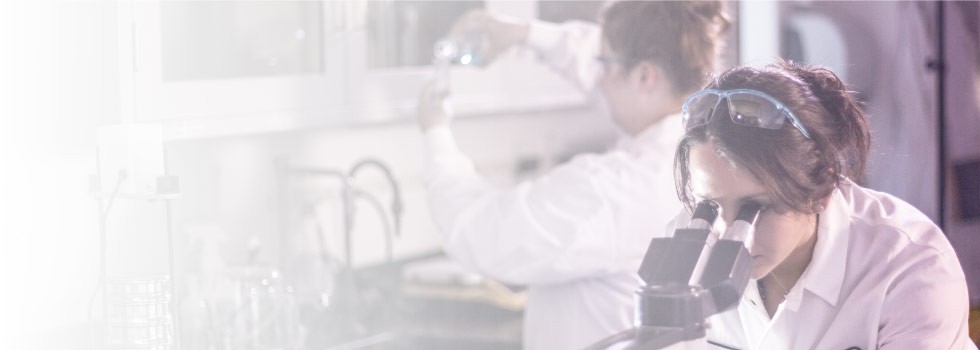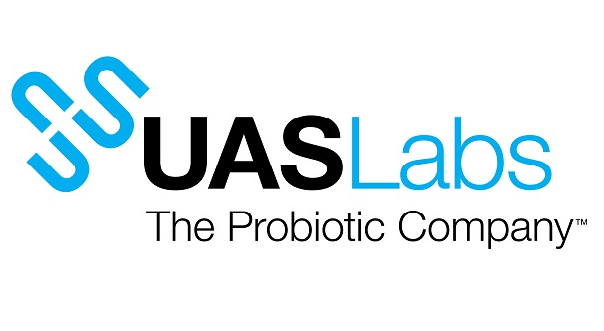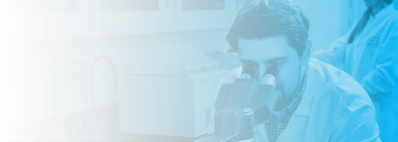Promotional Features
UAS Labs: A longstanding, pure-play manufacturer of premium probiotics
UAS Labs has a long, important pedigree in probiotics. Having been founded in 1979, the producer of premium probiotics has been at the forefront of the industry for almost as long as the industry has existed. Today, it continues to break new ground through its state-of-the-art manufacturing facility, commitment to randomized-controlled trials (RCTs) and development of condition-specific probiotics.
The extent to which UAS Labs was ahead of the curve when it started operating is illustrated by a review of the academic literature. When UAS Labs opened its doors in 1979, only 1,730 journal articles and patents related to probiotics had been published, according to Google Scholar. Since then, 136,000 more have been published. The rate of activity in the field has accelerated over that period. More than half of the probiotic documents published in the 38 years since UAS Labs opened its doors date from 2010 or later.
UAS Labs has contributed to this blossoming of probiotic research — 100 of the publications refer to the company — and it in turn has responded by continually retooling its operation to ensure it remains at the forefront of the industry. This process of continual improvement has ensured UAS Labs has remained as well known for its leading-edge expertise and forward-thinking approach as its longevity.
In recent years, notably since new owners took over the company in 2013, UAS Labs’ commitment to pioneering practices has led it to make outsized investments in its manufacturing plant and R&D capabilities. These investments have bolstered UAS Labs’ status as a pure-play producer of premium probiotics with deep in-house expertise and proprietary R&D technologies — a type of company that is almost as rare today as it was in 1979.
Investing in manufacturing excellence
UAS Labs, also known as The Probiotic Company, is built upon its probiotic-only manufacturing facility. Since UAS Labs’ CEO Kevin Mehring and CSO Dr Greg Leyer took charge of the company in 2013, they have made a considerable investment in the manufacturing facility.
The 45,000-square-foot facility is testament to UAS Labs’ focus on probiotics. Whereas mixed-use sites need to cater to the needs of a range of types of products, every design and process decision at UAS Labs’ facility is made to best serve the unique characteristics of probiotics. As live microorganisms, each with their own requirements throughout production and distribution, probiotics place particular pressures on manufacturers. UAS Labs’ investment priorities demonstrate its commitment to ensuring optimal handling of these microorganisms.
Investments in temperature and humidity controls were central to UAS Labs’ recent expansion. As bacteria arrive at the facility in a freeze-dried state, they must be kept in very dry, cool conditions if they are to remain dormant. Moisture and heat are the enemies of probiotics and the features of the UAS Labs facility reflect this.
At each step in the process from formulation to distribution, UAS Labs seeks to create the optimal environment for probiotic viability. This degree of end-to-end control is made possible by the fully-integrated nature of UAS Labs, which enables it to maintain standards from receiving raw materials through to shipping finished products.
Probiotic raw materials are identified internally using molecular biology tools allowing genetic identification and are stored at temperatures to maximize their shelf life. Once the raw materials move on for blending and other forms of processing, they enter production suites with similarly-rigorous temperature and humidity controls. Conditions in these suites are tailored to the needs of the strain being processed and monitored using sensors. If a controlled variable moves outside of the optimal range, key members of the production team are alerted through a mobile app.
The consideration of climatic conditions continues once the finished product is made. Probiotics are stored at temperatures just above freezing and shipped to buyers in containers with extremely dry atmospheres.
UAS Labs has used these capabilities and its expertise to secure NSF International, current good manufacturing practice (cGMP), United States Department of Agriculture certified organic, Kosher and Halal certifications.
Overcoming formulation challenges
UAS Labs, a provider of private label, contract manufacturing and raw materials services, has paired its production capabilities with substantial R&D and quality control operations. This combination yields benefits for UAS Labs and its customers.
If a contract manufacturing organization (CMO) comes to UAS Labs with a recipe and ambition to turn it into a product, the R&D team will assess various aspects of the formulation. Sometimes the formulation needs work if it is to be commercially viable, and this is when working with a partner with expertise and proprietary technologies pays dividends.
UAS Labs is particularly well equipped to manage the water activity of secondary materials. While the characteristics of the probiotic are set in stone, the optimization of the secondary materials used in the final product provide an opportunity to increase the viability of the formulation.
Recognizing this, UAS Labs has developed proprietary technologies to reduce the water activity of materials that would otherwise fail to meet its requirements. This permits the use of a wider range of materials than would otherwise be possible.
Once UAS Labs has a formulation that looks viable, it makes a small batch for use in stability tests. These tests use UAS Labs’ stability-assessment chambers, another resource in which the firm has invested. UAS Labs now has six stability-testing chambers. Products UAS Labs makes go into the chambers and are tested monthly or quarterly to gauge their long-viability. This way, UAS Labs can guarantee the shelf life of its products at room temperature.
Running clinical trials
The focus on scientific excellence that characterizes UAS Labs’ R&D team stems, in part, from its CSO. Dr Leyer is a primary researcher who specializes in probiotic efficacy and applications. He directs the R&D laboratory and UAS Labs’ clinical trial activities. The capabilities of the R&D laboratory and the very existence of the clinical trial program are testament to the commitment of UAS Labs to the advancement of scientific understanding of probiotics.
Few manufacturers conduct gold-standard clinical trials of probiotic strains and finished formulations. UAS Labs is part of this elite group. The company’s investment in clinical trials reflects its desire to further scientific understanding of probiotics and its belief that data from rigorous human studies will become increasingly important to ensure customers are receiving the best possible products backed by rigorous science..
The goal of UAS Labs’ study program is to put a substantial portion of private label formulations through double-blind, placebo-controlled randomized clinical trials. In doing so, it will generate data on finished product formulations. As UAS Labs does business in 45 countries, it operates in markets where such data is needed today.
UAS Labs has a track record of successfully running such studies. Notably, the 2014 acquisition of Micropharma gave UAS Labs a strain of Lactobacillus reuteri branded LRC and the team behind its development. The team has put LRC, a rare example of a condition-specific probiotic, through two gold-standard clinical trials and is currently running a third. Collectively, the trials show LRC acts on key biomarkers of cardiovascular health, such as cholesterol, high-sensitivity C-reactive protein and fibrinogen, and demonstrate UAS Labs’ scientific expertise.
LRC is currently available in capsules in the US. UAS studies show LRC works effectively in functional foods, including yogurts, fruit juices and soy-based beverages, and research into other probiotics suggests chocolate could also be a good delivery vehicle for the strain. UAS is looking to place LRC in specific markets and channels worldwide.
Preparing for the future
The story of LRC is indicative of how far the probiotics industry has come since 1979. LRC was selected through a rigorous scientific process for its elevated bile salt hydrolase activity, before being put through a battery of preclinical and clinical tests. The result is arguably the most effective and clinically-documented heart health probiotic strain on earth.
That such innovation is now part of a 38-year-old company is testament to UAS Labs’ commitment to remaining at the forefront of the probiotic sector. Rather than atrophying like some established companies, UAS Labs has used its experience and expertise to continuing advancing the field of probiotics and adapting its operation to the changing landscape.
Today, with expertise, science and a state-of-the-art facility in place, UAS Labs is as well equipped as ever to continue breaking new ground in probiotics and meeting the needs of its strategic


